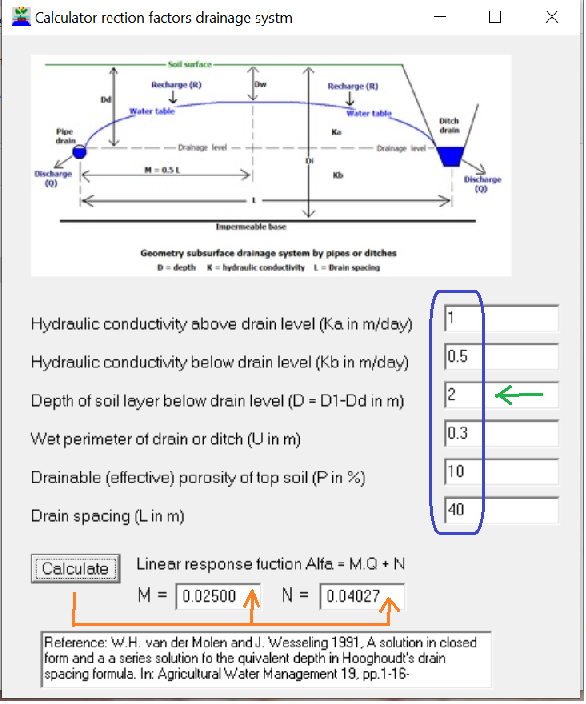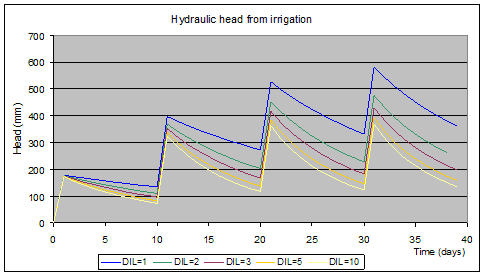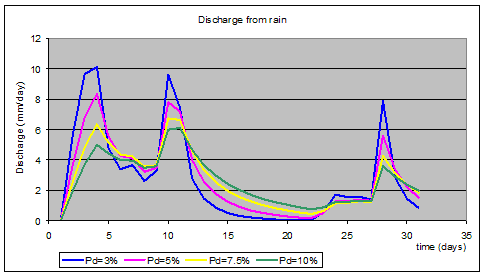Summary:
The DrainCalc computer program, or simulation
model, calculates drain discharge from
time-variable rainfall in subsurface drainage
systems. Also it finds the fluctuation of the
water table. It concerns a non-steady state
(transient) situation.
The program can be freely downloaded, it is free
shareware in the public domain.
The irrigation+rainfall is converted into recharge
by routing through a retention reservoir from
which water escapes depending on predetermined
characteristcs as storage capacity, initial
storage and maximum rate of escape (representing
evaporation or natutal subsurface drainage).
This first reservoir gives the recharge
(rainfall excess) as overflow.
The recharge is routed through a second,
non-linear, reservoir with a reaction factor
whose value depends on the storage level. Thus,
the conversion (transformation) of irrigation+rain
into drain discharge and flooding is produced.
Modelling with DrainCalc gives the opportunity of
predicting the hydrology of the drained
agricultural land under varying irrigation,
rainfall and evaporative conditions.
The model program offers a calculator to compose
the reservoir reaction factor or response
function from the characteristics of the drainage
system.
|
Details:
The reaction (response) factor can be determined
from recorded irrigation+rainfall-discharge or
irrigation+rainfall-hydraulic head (level of the
water table) data.
The program uses various reservoir functions and
selects the optimal function. Alternatively, it is
possible to introduce the reservoir function,
together with irrigation-rainfall data, and the
program will calculate the discharge or the water
level.
More details are given in the program itself.
|
Start:
The program starts giving clicking on
DrainCalc.Exe.
More information is given in the program itself.
|
Documentation:
A description of the procedure and equations used
in DrainCalc is found in this paper on the
reservoir model.
A lecture note ("Data Analysis") on drainage
research with examples of DrainCalc applications
is found on the
articles
page.
An article "Influence of the soil depth on the
functioning of a subsurface drainage system
analyzed with the free DrainCalc model" can be
read at:
DrCalc.pdf
Further s similar article featuring the
soil's drainable porosity instead of the soil
depth can be consulted at
pores.pdf
|
Experiences:
For improvement, I am interested to learn about
your experiences with DrainCalc. For this there is
a contact form.
|
|
Download
DrainCalc
Go to:
Software
& models
General articles
& manuals
Artículos
(in Spanish,
en Español)
Published
reports & cases
Particular
reports & cases
FAQ's
& answers
Home
page
|


